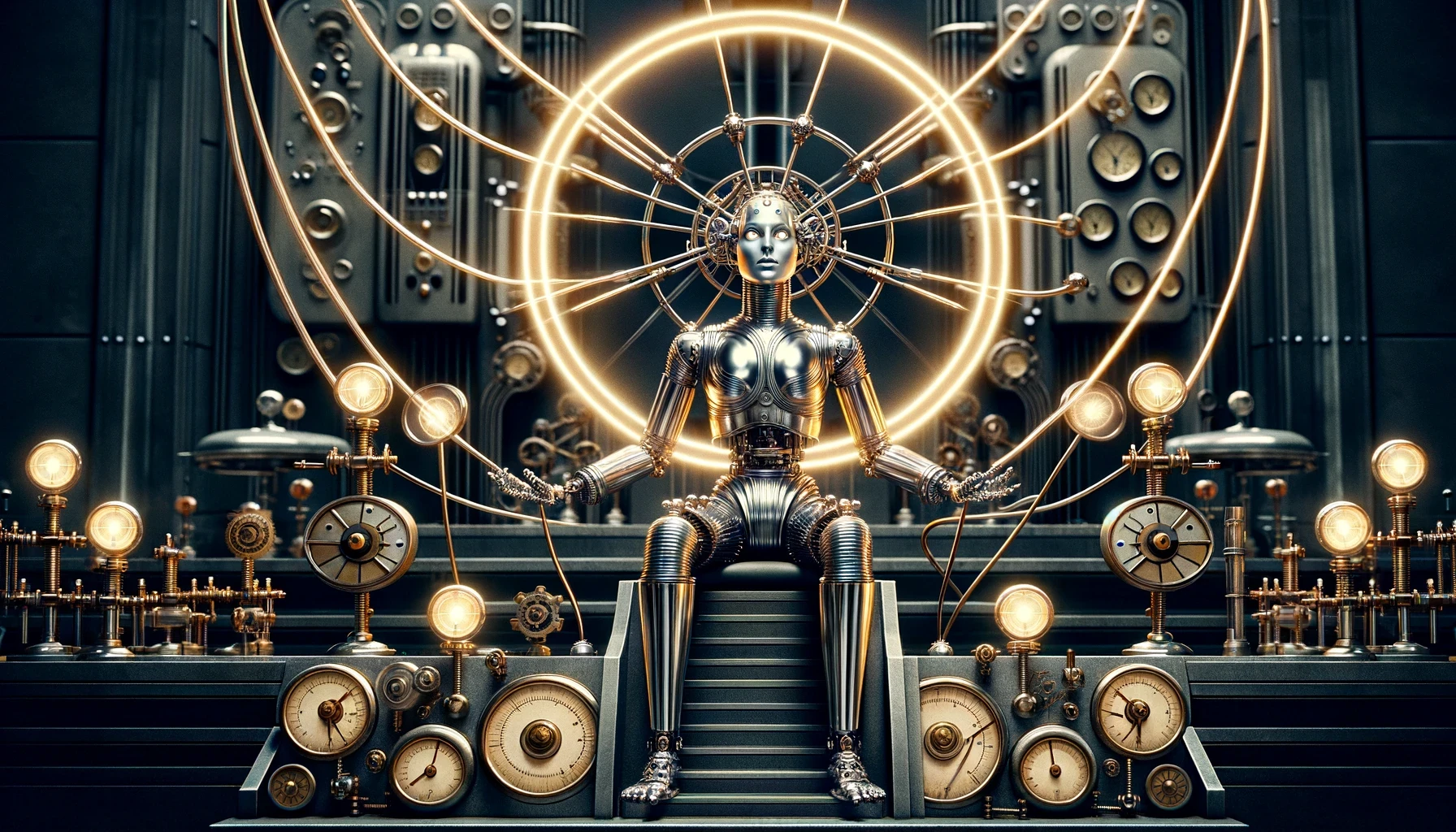Description
“Metropolis” is a landmark silent film directed by Fritz Lang, released in 1927. It is one of the most celebrated and influential movies in the science fiction genre, and it is renowned for its innovative special effects, set designs, and visual style. The film was produced in Germany during the Weimar Republic era and is part of the German Expressionist movement, which is known for its emphasis on symbolic and stylized visual aesthetics.
Plot Summary
The story of “Metropolis” is set in a dystopian future where society is starkly divided between two classes: the wealthy elite who live in luxury and leisure in the towering skyscrapers of the city, and the workers who toil in harsh conditions below ground to sustain the city’s operations. The narrative follows Freder, the son of Joh Fredersen who is the master of Metropolis, and Maria, a compassionate figure who preaches peace and unity to the workers. Freder is unaware of the workers’ plight until he encounters Maria, and his newfound awareness drives him to seek change.
Themes and Symbolism
“Metropolis” explores themes of social inequality, exploitation, class conflict, and the quest for justice. The film is deeply symbolic, using the stark contrast between the world of the elite and that of the workers to critique the dehumanizing effects of industrialization and unchecked capitalism. The character of Maria represents hope and the possibility of bridging the gap between the classes, while the creation of a robot duplicate of Maria by the mad scientist Rotwang introduces themes of technology’s potential to deceive and manipulate.
Influence and Legacy
The visual style of “Metropolis” has had a profound influence on the development of science fiction cinema. Its depiction of a futuristic city with towering skyscrapers, flying vehicles, and massive industrial complexes has become a template for the portrayal of future urban landscapes. The film’s special effects, particularly the use of miniatures and the Schüfftan process (a technique for combining live actors with miniature sets), were groundbreaking at the time.
Despite its initial mixed reception and the fact that portions of the film were lost for decades, “Metropolis” has been recognized as a masterpiece of cinema. It was inscribed on UNESCO’s Memory of the World Register, highlighting its cultural significance. Over the years, the film has been restored to include missing scenes discovered in various archives, allowing contemporary audiences to appreciate its narrative and visual ambition more fully.
“Metropolis” remains a critical work for its visionary depiction of a future society and its exploration of themes that are still relevant today, such as the impact of technology on society, the importance of empathy and understanding across social divides, and the pursuit of harmony in a fragmented world.
More information:
https://www.britannica.com/topic/Metropolis-film-1927
https://en.wikipedia.org/wiki/Metropolis_(1927_film)
See Movie Review here.

Reviews
There are no reviews yet.